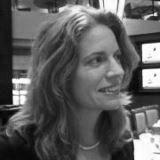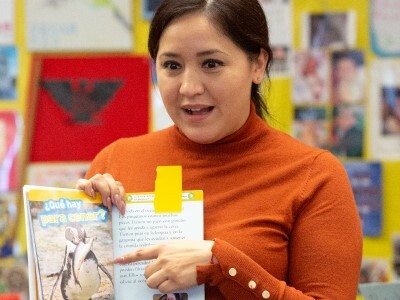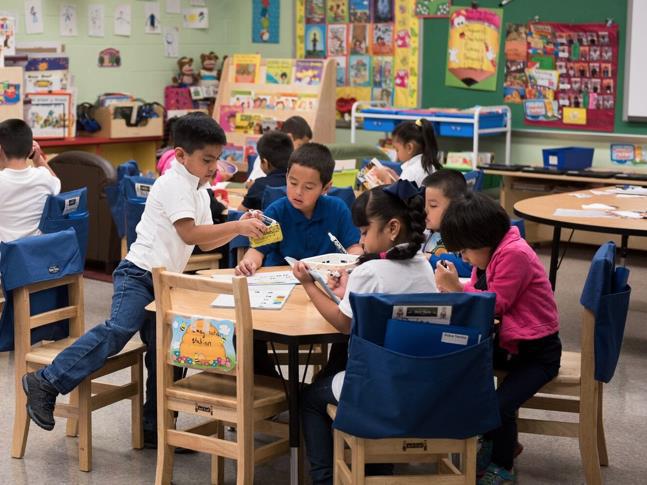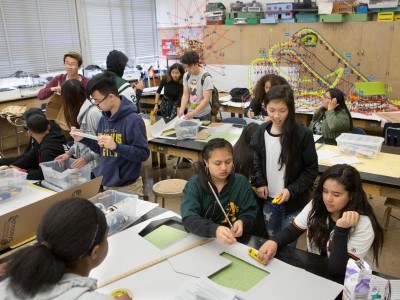Six Next-Gen Learning Hubs: Assets, Partners, and Challenges
Topics
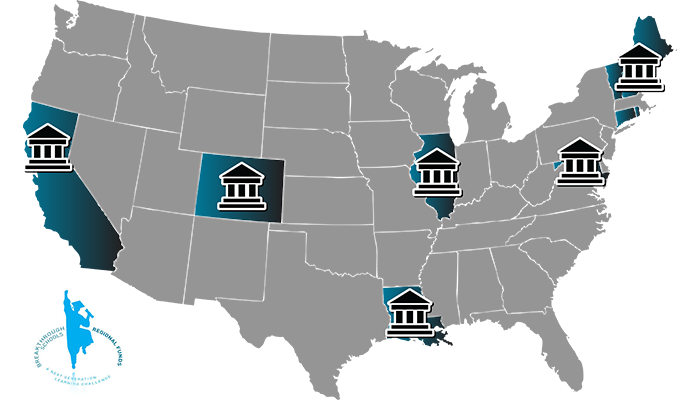
When educators design and create new schools, and live next gen learning themselves, they take the lead in growing next gen learning across the nation. Other educators don’t simply follow and adopt; next gen learning depends on personal and community agency—the will to own the change, fueled by the desire to learn from and with others. Networks and policy play important roles in enabling grassroots approaches to change.
Six regions in the nation are infusing a new approach to education reform that iteratively but dramatically changes the way learning happens in schools.
Six regions in the nation are infusing a new approach to education reform that iteratively but dramatically changes the way learning happens in schools. They are helping schools and teachers take on next generation learning strategies based on research, best practices, and access to emerging technologies. These strategies build on what individual students already know and can do, meet their individual needs, and help them carve their own paths through learning. The six regions recently announced grants, professional development, and technology support for 49 schools through the NGLC Regional Funds for Breakthrough Schools.
In The Inside Story, I described how the Regional Funds partners are helping educators design instruction, schools, and systems of support around students. Here’s how each site is building their own ecosystem of educational innovation.
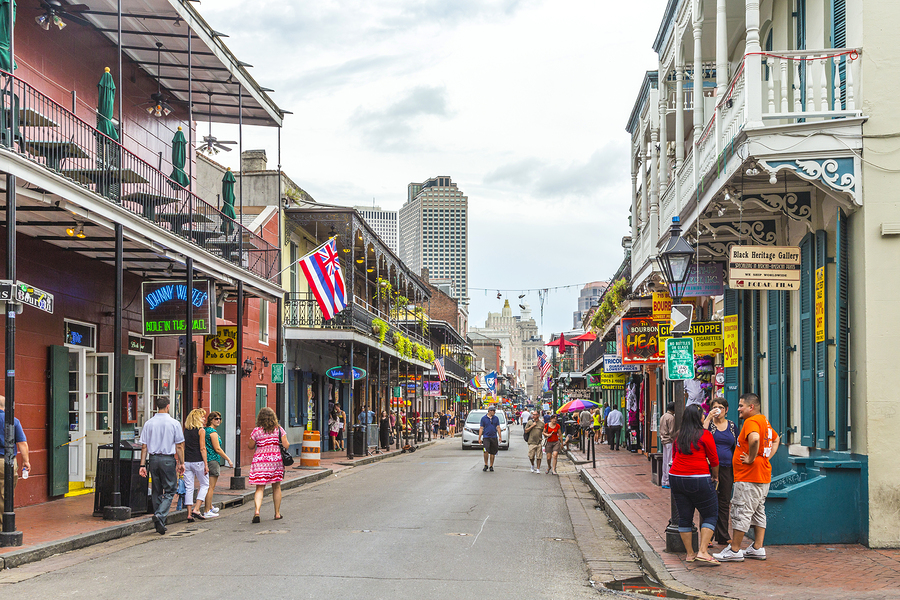
New Orleans
Ten years after Hurricane Katrina, the commitment to excellence and equity endures in the education culture of New Orleans. You can see it in two recent city-wide celebrations: New Orleans Excellence in Teaching Award and Senior Shout Out Day. Add in a revitalized sense of entrepreneurship and you get that special roux—a distinctive flavor of New Orleans. Breakthrough Schools: New Orleans, led by New Schools for New Orleans, leverages this “educational roux” through informal and formal channels. Informally, educators are able to test tools and network with others identifying as tech-minded teacher-leaders at regular EdTech meetups sponsored by partner Educate Now! On the formal side, a national competition brought new school designs to the city and a local grant opportunity helped existing schools explore, pilot, and implement personalized learning.
- Assets: Citywide commitment to excellence and equity in education. Largest charter market in the nation. Student achievement and college readiness indicators that are on the rise.
- Partners and Technical Support Providers: New Schools for New Orleans, 4.0 Schools, Educate Now!, Orleans Parish School Board, Louisiana Recovery School District, Blueprint Educational Consulting
- Challenges: Strategies that raised students’ basic skills to date may not offer continued growth. Engaging even more diverse stakeholders in discussions about learning design.

Chicago
In Chicago, the thinking is bold and creative. The action fast-paced and fun—like a Second City comedy skit where meaningful connections are made, re-made and re-invented in the second act. That sustained momentum is being built for and with city educators. Two years ago, lead partner LEAP Innovations collaborated with the Chicago Public Education Fund to pilot the NGLC Regional Funds with a three-month design program. Now Breakthrough Schools: Chicago engages the planning grantees in a 10-month professional development series tailored to meet their school redesign needs. The unique opportunity to engage in skill-building, collaborative planning, and like-minded community is sure to keep school teams from singing the blues.
- Assets: Strong partnership with district schools and charter schools. Co-location with tech hub 1871. Commitment to professional development for instruction and teacher-led innovation. LEAP Pilot Network and Collaboratory, where educators access new personalized learning tools and strategies and support to implement them. Chicago Public Education Fund’s Summer Design Program for educators to create innovations that solve school-based, student-centered challenges.
- Partners and Technical Support Providers: LEAP Innovations, Chicago Public Education Fund, Chicago Public Schools
- Challenges: Supporting the growing pipeline of schools, some of which aren’t receiving grant funds. Integrating related strands of work to enable educators to drive and tailor tech solutions.
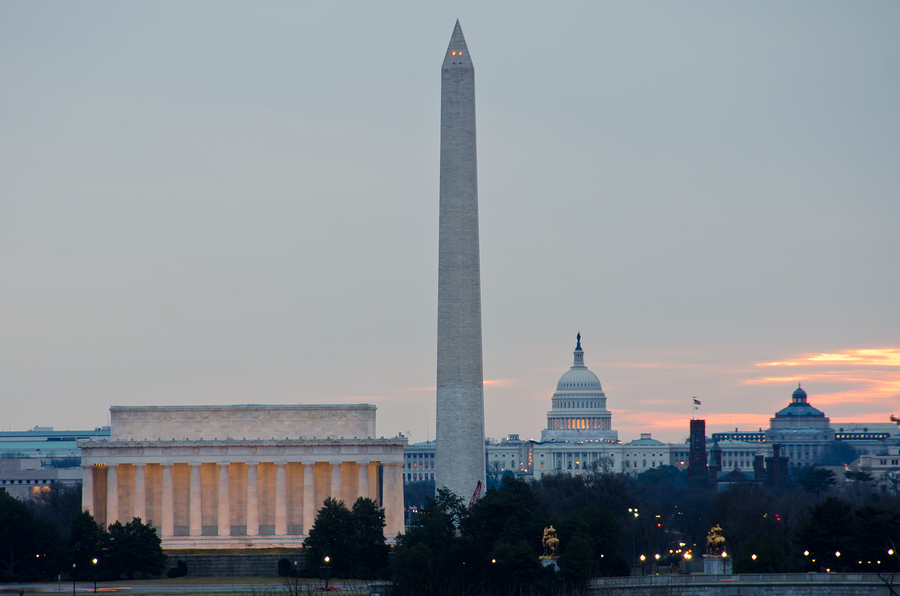
Washington, D.C.
The nation’s capital is small but the regional strategy is monumental, wrapping itself around the educational environment like the Beltway encircles the city. Led by CityBridge Foundation, Breakthrough Schools: D.C. supports both charter and district efforts at whole-school innovation through workshops, coaching, and convenings. The charter environment is ripe for bold new school models with high levels of autonomy afforded them under strict oversight. And grassroots, teacher-led innovation within the district is lifted by CityBridge’s parallel talent strategy, the Education Innovation Fellowship. Given its size and conditions, Washington, D.C. could soon reach a tipping point for next-gen learning. To date, CityBridge has selected and supported 13 school teams as planning grantees but surfaced and engaged more than twice that number of next gen learning innovators in two short years. The goal is 20 new or redesigned schools; 15% of the city’s students would benefit.
- Assets: Synergy of strategies. On-going proposal supports. Fifty-four Education Innovation Fellows. An annual Education Innovation Summit. An education environment evenly split among district and charter schools both with active and supportive leadership.
- Partners and Technical Support Providers: CityBridge Foundation, D.C. Public Schools, 2Revolutions, Afton Partners
- Challenges: Continuing to attract competitive designs and applications from district-led school teams. Sustaining efforts when a tipping point is reached.

Colorado
As we travel west, the landscape is both expansive and mountainous. Our sense of scope and scale changes. The regional strategy here engages reform at all levels of public education simultaneously. Statewide intermediary, the Colorado Education Initiative, coordinates a coalition of three traditional districts, two schools per district, and the state department of education. The coalition is committed to an open process, exemplified by the inspiring public Pitch Day where six schools presented their plans for redesigning learning as part of the grant selection process. The transparency supports cross-district learning and sets the tone for statewide next-gen learning. A primary driver for Breakthrough Schools: Colorado is the state’s high school graduation requirements, which allow districts and schools to create their own path, with community input, for guiding students to graduation. Building the ecosystem here is like climbing a mountain. Each step offering deliberate and steady progress. Through a comprehensive and collaborative strategy, coalition members attend to all the interconnections between policy, procurement, school redesign, and educator support.
- Assets: Graduation Guidelines. State-level partners committed to providing enabling policy conditions. Advisory board representing all partners.
- Partners and Technical Support Providers: Adams County School District 50, Colorado Springs District 11, Thompson School District, Colorado Department of Education, Colorado Education Initiative, 2Revolutions
- Challenges: Scaling and sharing practices across school teams. Engaging statewide leaders who have not yet benefited from the design thinking process.

New England
In a region largely dotted by small districts, self-sufficiency is as valued in New England as community interdependence. Like its cottage industries, small fisheries, and prestigious colleges, the region’s NextGen Personalized Learning Initiative is committed to a local context and capable of influencing a national market. New England’s approach draws upon an educational culture of local control and teacher-driven change. The desire by teachers, schools, and districts to shift toward proficiency-based learning, with the backing of the local community, is driving the effort in New England. There’s a history of competency-based education in the five states, primarily through enabling state and district policies. The New England Secondary School Consortium (NESSC), coordinated by the Great Schools Partnership, is building on this history, providing customized support to develop educators’ capacity and refine district policies. The relationships began when teams visited each applicant from NESSC’s League of Innovative Schools to understand the school environment and see first-hand what was in place. School improvement coaches were matched to selected schools according to their specific needs and plans. Schools now receive 40 days of personalized coaching support per year.
- Assets: Strong state and district policy environments for competency-based education. Coaching. Partner expertise in proficiency-based learning. Annual High School Redesign in Action conference.
- Partners and Technical Support Providers: Great Schools Partnership; State education agencies from CT, ME, NH, RI, VT; Nellie Mae Education Foundation
- Challenges: Scaling throughout a five state region.

Oakland
California’s Bay Area is home to Facebook, Google, eBay, and Apple and popular next-gen schools like Summit Denali and Leadership’s Oakland R&D. It’s not surprising, then, that the current educational culture in Oakland favors a bootstrapping mindset and using technology for learning, collaborating, networking, and working smarter. Many charter and district schools in the surrounding area, including Oakland Unified, use blended learning in their classrooms, and NGLC in Oakland leans on the expertise of local educators. Instead of designing its own workshop series, Oakland’s intermediary partner, Rogers Family Foundation, pulled together a Learning Map of carefully recommended workshops and other supports that leveraged both local and national expertise. The initiative emphasizes support for school redesign, develops educator skillsets, and focuses on change through adaptive leadership which prioritizes root assumptions in a hearts and minds approach over technical change and surface-level fixes.
- Assets: Regional culture of innovation in education. Local expertise in and commitment to blended learning. The tech expertise, innovation culture, and funding resources available from Silicon Valley.
- Partners and Technical Support Providers: Rogers Family Foundation, Oakland Unified School District, Oakland Public Education Fund, Mastery Design Collaborative
- Challenges: Coordinating and integrating the resources of the city and region to design schools with the greatest impact. Measuring impact across different and dynamic models.
This blog post first appeared on Getting Smart on July 22, 2015 and is part of a series on the Regional Funds for Breakthrough Schools. For more, stay tuned in September for the final published project, Getting Smart on Regional Next-Gen School Design.

